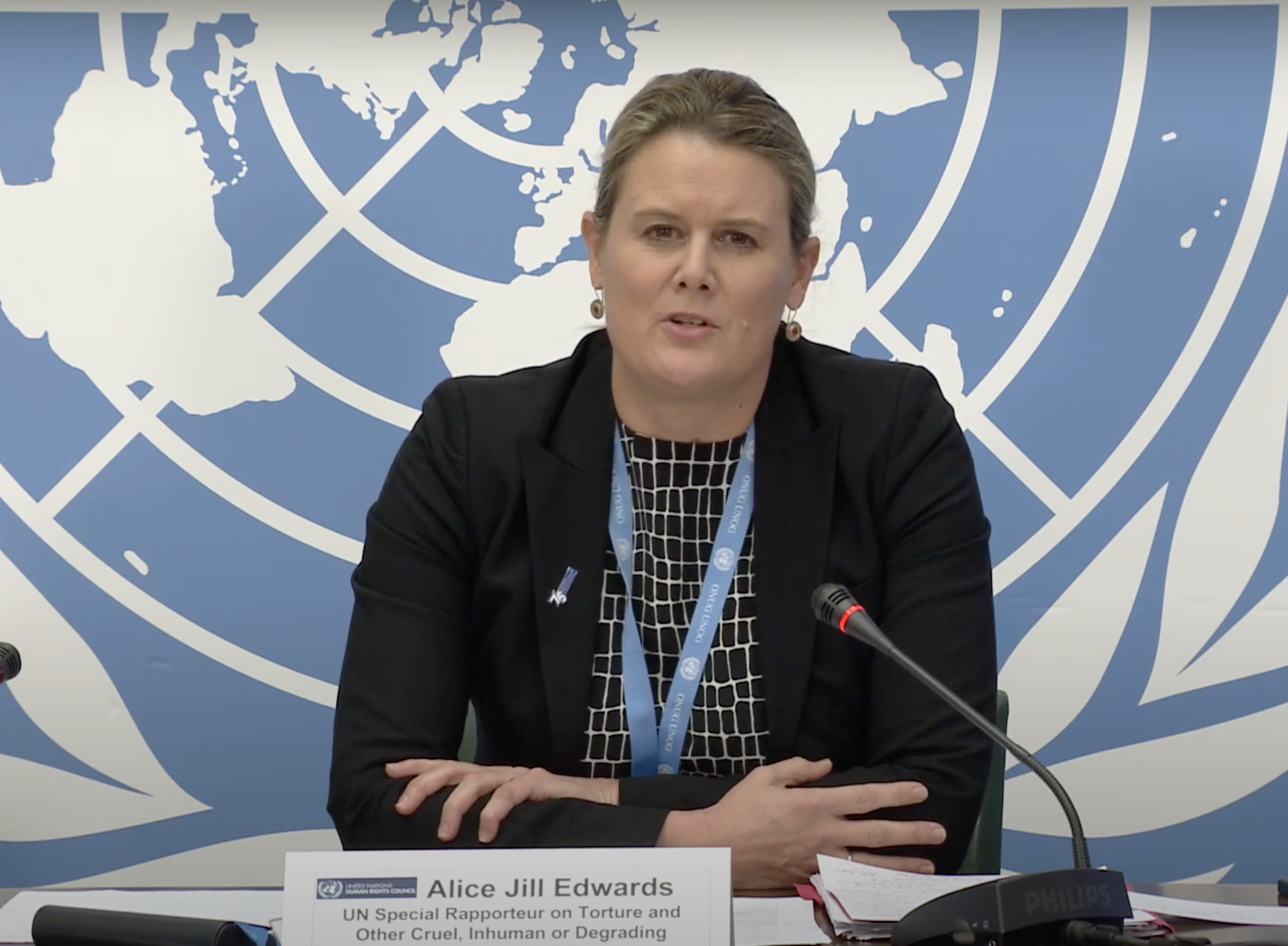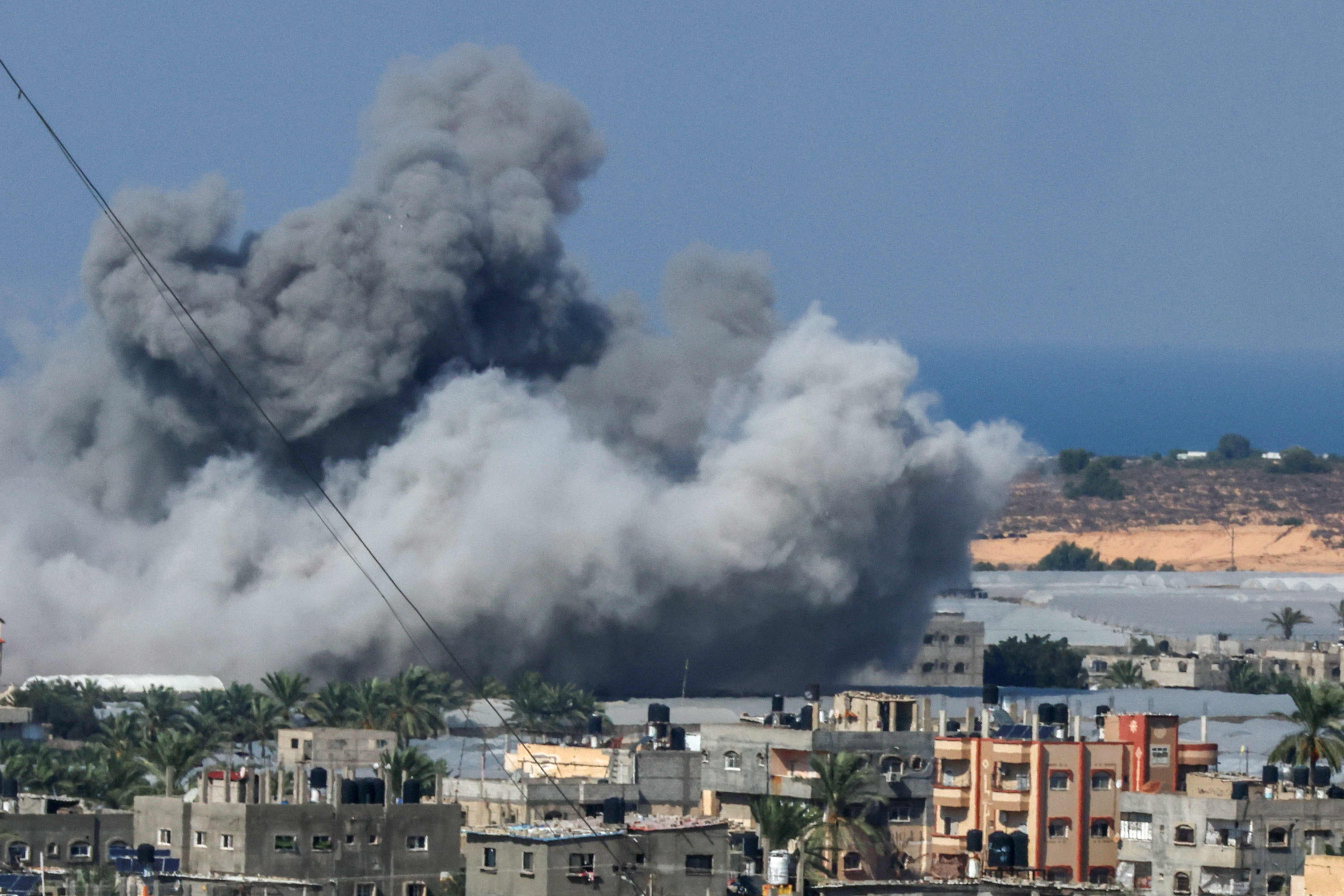Palestinians must be guaranteed right to return to homes in Gaza, warns UN expert
Exclusive: ‘History may tell them it’s a door they shouldn’t leave from’ if Egypt does open border, special rapporteur on torture says
Your support helps us to tell the story
From reproductive rights to climate change to Big Tech, The Independent is on the ground when the story is developing. Whether it's investigating the financials of Elon Musk's pro-Trump PAC or producing our latest documentary, 'The A Word', which shines a light on the American women fighting for reproductive rights, we know how important it is to parse out the facts from the messaging.
At such a critical moment in US history, we need reporters on the ground. Your donation allows us to keep sending journalists to speak to both sides of the story.
The Independent is trusted by Americans across the entire political spectrum. And unlike many other quality news outlets, we choose not to lock Americans out of our reporting and analysis with paywalls. We believe quality journalism should be available to everyone, paid for by those who can afford it.
Your support makes all the difference.Palestinian civilians fleeing Israel’s bombardment and looming ground invasion must be given guarantees that they will be allowed to return to their homes in Gaza, the United Nations’ special rapporteur on torture has said.
Israel is amassing troops near the densely-populated enclave and conducting heavy airstrikes as it vows vengeance after Hamas militants burst through the border and massacred hundreds of people in nearby Israeli settlements last weekend.
At least one million people have already been displaced from their homes in northern Gaza while “a river of people continues to flow south”, the UN has said, as Palestine’s health ministry warned hospitals had just hours of fuel left amid an intensified Israeli blockade on electricity, water and other vital supplies.
A host of UN experts jointly called for a ceasefire last week as they warned that Gaza’s 2.3 million-strong population was “at inescapable risk of starvation” and said indiscriminate attacks on civilians trapped in the enclave amounted to the war crime of collective punishment.
Asked a hypothetical question over what would happen if Egypt opens its border to civilians fleeing an invasion, Dr Alice Jill Edwards told The Independent that “those individuals must be guaranteed the right to return” to their homes in Gaza.
“That may well be a reason why individual families may choose not to leave – for fear that they may not be able to return to their land,” said the UN’s special rapporteur on torture, who was among those to sign the joint statement on Thursday.
“Given that Gaza is made up of both refugees, but also Gazans, it’s really emotionally and psychologically very complex for Palestinians to think that there is an exit.
“History may tell them it’s a door they shouldn’t leave from.”

The prospect of Cairo opening its border to civilians appeared unlikely on Tuesday, as the Rafah crossing between Egypt and the Gaza Strip remained closed even to allow aid to be brought in and foreign nationals to leave.
For Palestinians, the idea of leaving or being driven out of land where they want to forge a state carries echoes of the “Nakba”, or “catastrophe”, when many Palestinians fled or were forced from their homes during the 1948 war that accompanied Israel’s creation.
While the United States said last week it was talking to Israel and Egypt about the idea of safe passage for Gaza civilians, the UN has said it does not want to see a mass exodus of Gazans, while Egypt and Jordan have both warned that Palestinians must remain on their land.
Francesca Albanese, UN Special Rapporteur on human rights in the Palestinian Territory, warned on Saturday that Palestinians may be facing another Nakba, adding: “Again, in the name of self-defence, Israel is seeking to justify what would amount to ethnic cleansing.”
There are currently 1.7 million people registered as refugees living in Gaza, close to half a million of whom live at eight refugee camps in the enclave.

Israel has enforced a strict blockade of the Strip since 2007, having previously occupied it for nearly 40 years after seizing Gaza, the West Bank and East Jerusalem during the 1967 Middle East war.
Urging Palestinian militants to release their hostages – whom Israel say number nearly 200 – and ensure they are treated in line with international norms, Dr Edwards added: “I would really like to see that this long-standing conflict between neighbours is resolved.
“And I really think there needs to be a much greater push by the United Nations and also the member states to bring the Palestinian Authority and Israel together to find a resolution to the conflict and occupation.”
Additional reporting by Reuters





Join our commenting forum
Join thought-provoking conversations, follow other Independent readers and see their replies
Comments